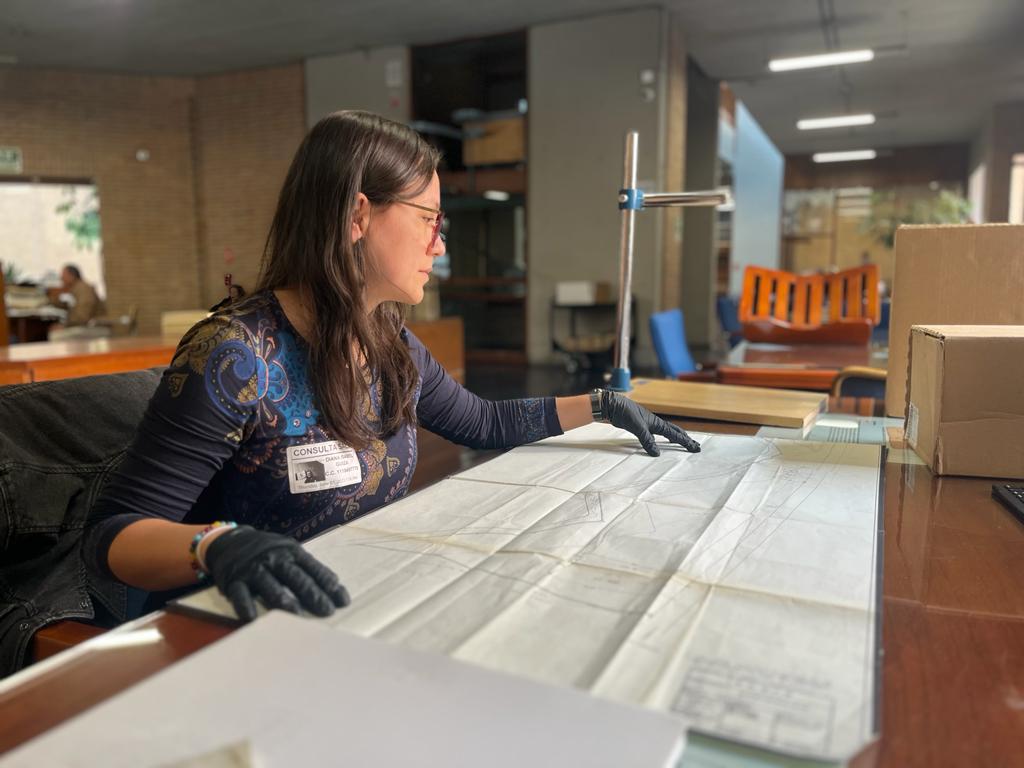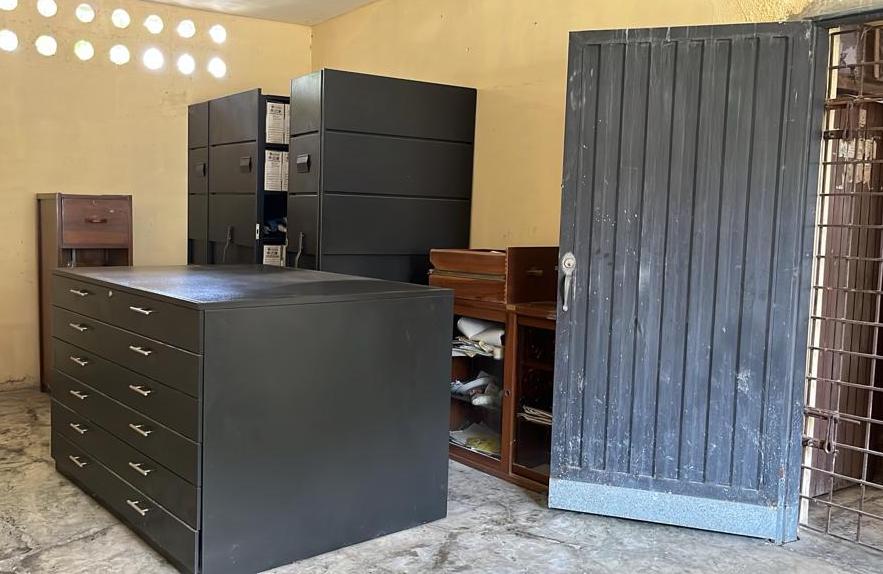From January to September 2023, Kellogg Doctoral Affiliate Isabel Güiza-Gómez (political science and peace studies) traveled to rural and urban areas in Colombia on a Kellogg Institute Graduate Research Grant to conduct research for her project “Landing Peace: Rural-Poor Mobilization and Land Redistribution in Civil War Political Transitions.” Upon her return, she sent the following summary of her work.
Civil war political transitions are usually conceived of as the reworking of institutions to strengthen political democracy for previously sidelined actors such as former guerrilla combatants and marginalized communities. Yet transitions also intend to deepen economic democracy by engineering the status-quo distribution of wealth that usually nurtures armed confrontation. Land redistribution is an oft-found commitment in peace agreements, which is ultimately implemented to varying degrees on the ground. According to the PA-X Peace Agreements Dataset hosted at the University of Edinburgh, between 1990 and 2021, 42 out of 84 civil war negotiated settlements address land reform or rights, including land ownership, access to farming land and agricultural support services for the rural poor, and property returns. Why is wealth redistribution forged from below in civil war political transitions despite prior theorizing that understands political transitions as key instances for political democracy at the expense of economic democracy?
My dissertation project addresses this puzzle by conducting an in-depth analysis of the Colombian case during two major war-to-peace transitions in the 1982-2002 and 2012-2022 periods. The country underwent the longest-running civil war in the Western Hemisphere, which was rooted in land inequality and political exclusion for rural populations. Also, Colombia has been home to several attempts at democratization via negotiated settlements through peace accords with leftist guerrilla groups and a brand-new constitution. Strikingly, after the 1990-1994 peace agreements and the 1991 constitution, ethnic movements like Afro-descendant and Indigenous communities have forged land redistribution through collective land titling despite a long history of deficient land reform implementation and following civil war land dispossession in the 2000s. More recently, after the 2016 comprehensive peace accord with the former FARC-EP featuring land reform for the rural poor, Campesino (peasant) movements have grown in strength and secured major political wins, which are increasingly translating into renewed efforts for individual and collective land titling despite lagging peace implementation in the last years.


Campesino archives hosted at ANUC Casa Campesina in Sincelejo (Sucre, Colombia, May 5, 2023)
The Kellogg doctoral research grant funded nine months of fieldwork in several Colombian sites, my home country. My data collection includes original archives like insurgent, clandestine magazines, movement manifestos and newspapers, and peace table and constituent assembly records hosted by public and private libraries in Bogotá, Medellin, Sincelejo, Cartagena, and Popayan. I have also run participant observation of movements’ gatherings and 100 in-depth interviews with government officials, former insurgent negotiators, social movements, scholars, and NGO representatives in Bogotá, Medellin, Bucaramanga, Sincelejo, Cartagena, and rural areas in Chocó, Antioquia, Norte de Santander, Tolima, and Cauca. Relying upon research assistantship from undergraduate coders based in Bogotá, I have assembled two new databases containing 21,981 citizen proposals submitted to the 2012-2016 peace table and 32,063 citizen proposals sent to the 1990 Constituent Assembly. Likewise, I have curated two municipal-level datasets on rural-poor contentious and private and collective land allocation from 1975 to 2022.
(Norte de Santander, Colombia, September 24, 2023)
My research expands on previous social mobilization, political economy, and peacebuilding scholarship to investigate insurgent negotiators' strength and strategizing to anchor redistribution to the terms of negotiated settlements, and peasant, indigenous, Afro-descendant, rural women, and victims' collective action to shape the nature and content of redistributive reform, and the effectiveness and scope of policy implementation. I argue that the strength of insurgent and rural-poor collective action primarily drives land redistribution found in political commitments and delivered through policies in war-to-peace transitions given two conditions. First, an elite moderate faction gains leeway over hardliners to strike redistributive agreements that are otherwise highly unlikely to be reached in power equilibria dominated by radical elites. Second, transitions of the sort entail sudden changes in the balance of power that adopt institutional innovation in political inclusion for previously sidelined actors and claims, and settlements’ implementation in a timely and faithful fashion.
While the strength of collective action drives the establishment of redistributive land reform, movements’ capacity to distance themselves from civil war dynamics shapes the scope and nature of redistributive reform. On the one hand, movements deploying strategies and frames linked to insurgent action achieve redistributive outcomes directed to populations and areas of influence as a way of diminishing mobilization threats to political and economic instability. To wit, this type of reform is fragmented, limited in scope, and more contentious, which decreases chances for broad-coalition-building to overcome landed elites’ opposition. On the other hand, movements using strategies and frames uncoupled from insurgent action attain redistributive reform intended to broader populations and areas with the purpose of redressing inequalities that seemingly do not pose major risks at the status-quo distribution of wealth. That is, this kind of reform is more comprehensive and likely to garner support from broad coalitions encompassing moderate elites and external actors crucial to surpassing landed elites’ resistance.
My initial findings lend support to this argument. Insurgent groups showing high commitment and bargaining leverage force their government counterparts to compromise on redistributive land reform, whereas rebel negotiators yielding low bargaining power fail to do so despite having take a hard stance on redistribution. Similarly, strong movements—e.g., engaging with state institutions or using contentious repertoires of mobilization at high extent—influence land reform enshrined in political commitments and delivered on the ground. Further, movements distancing from war dynamics such as Indigenous and Afro-descendant groups compel warring sides to compromise on redistribution through collective land titling. Conversely, movements who remain—either intentionally or unintentionally—aligned with insurgent action such as Campesino movements secure individual land titles in areas of protest influence only.
Field visit to a plantain plantation owned by peasants through protest in Turbo (Antioquia, Colombia, July 29, 2023)





